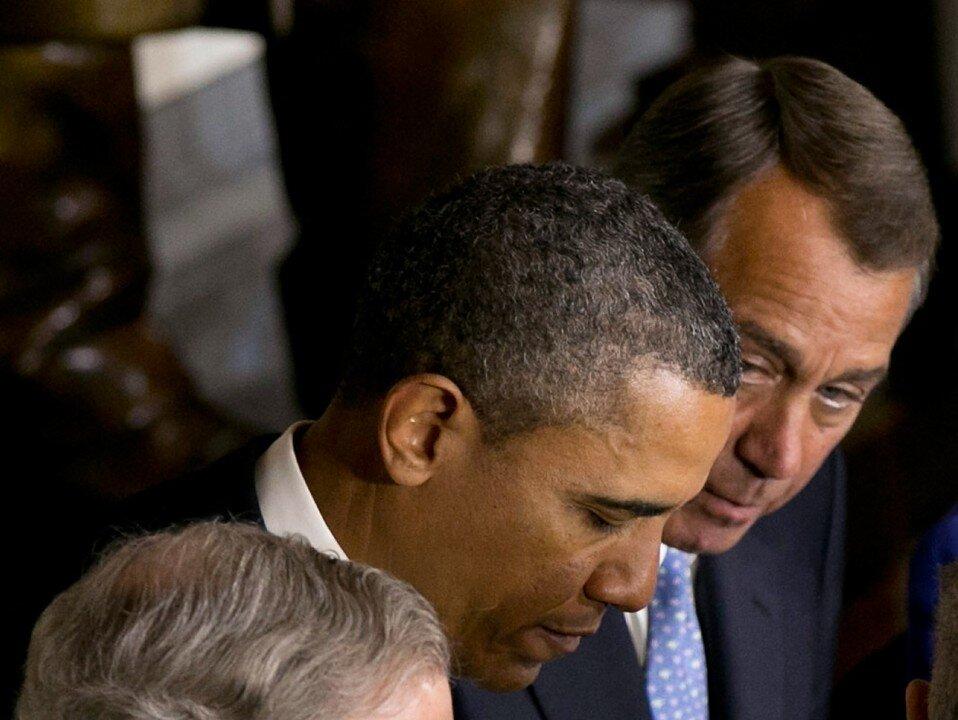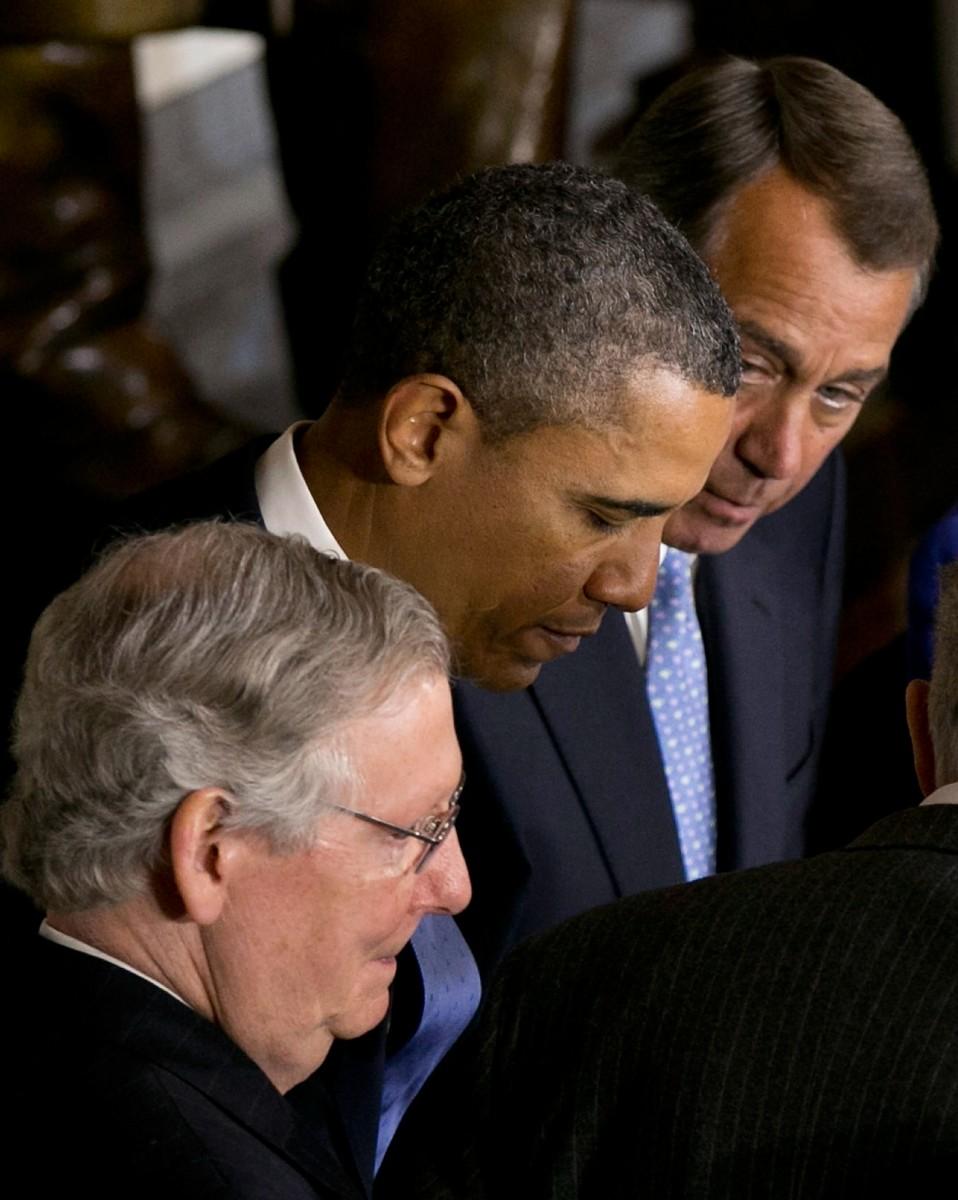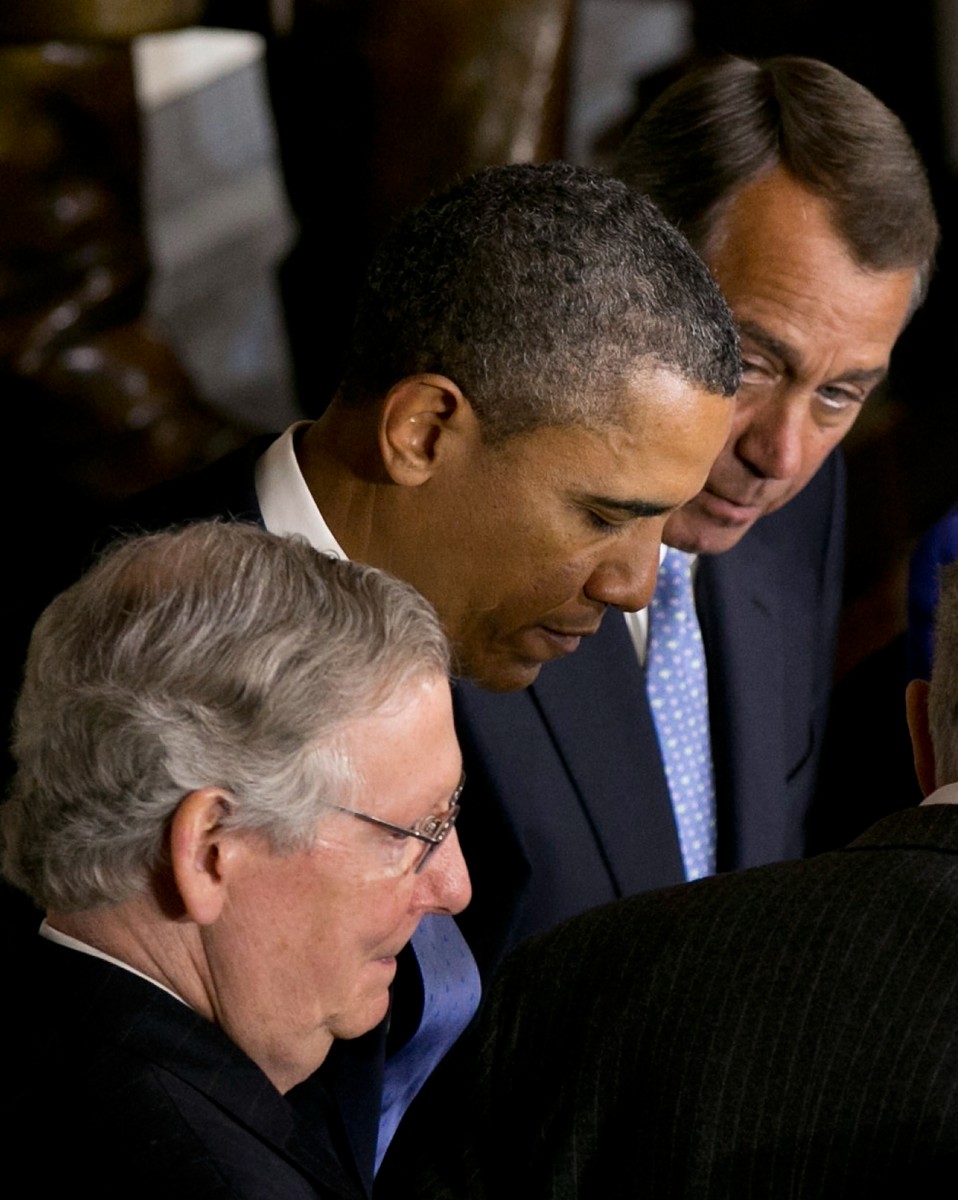The Senate voted twice on a plan to avoid automatic budget cuts, also known as the sequester, on Feb.28, but neither the democratic nor the republican proposal could gain a majority, so $42 billion in effective spending cuts are going ahead as planned.
The automatic cuts to budgets of federal programs affect everything from defense to education while leaving most entitlement and social security programs intact. The Congressional Budget Office (CBO) estimates that in order to cope with reduced spending authority 800,000 “full-time equivalent” jobs will have to be cut from the federal government’s workforce of 2.2 million. Although most of these cuts will be in the form of unpaid leave, services to citizens from air-traffic control to tax-form processing will be limited.
The President is going to make a last ditch effort to avoid the cuts which he will be forced to start implementing at midnight EST March 1. He is going to meet Senate Minority Leader Mitch McConnell, R-Ky and House Speaker John Boehner, R-Ohio March 1 to try to avoid indiscriminate cuts to federal programs. On the other side of the table will be Senate Majority Leader Harry Reid, D-Nev., and House Minority Leader Nancy Pelosi, D-Calif.
McConnell told USA Today that this was “an opportunity for us to visit with the president about how we can all keep our commitment to reduce Washington spending.”
Hopes are low, however, that party leaders can find a solution to a problem that 56 percent of American’s say will make the economy get worse, according to a Gallup poll. The IMF also warned Feb. 28 that it would reduce its growth forecast for the United States by 0.5 percent from the current 2 percent for 2013 if the budget cuts go through.
“It’s really going to affect U.S. growth,” an IMF spokesman told Agence France Press. “We have to see how deeply the spending cuts are implemented.”
Divides over whether to use taxes or cut spending in other areas see too large to bridge. “I would be happy to give the president more flexibility and rely on the agency heads to decide which specific programs should be cut to achieve $85 billion in reductions between March 1 and September 30,” McConnell had told reporters earlier this week.
The Democratically controlled Senate voted down his proposal Feb.28 since President’s Obama wants to include tax-hikes in new budget savings. “There are too many Republicans in Congress right now who refuse to compromise even an inch when it comes to closing tax loopholes and special interest tax breaks. And that’s what’s holding things up right now,” Obama said at a speech in Newport News, Va., on Feb. 19.
Senate majority leader Reid’s proposal to save $110 billion through tax hikes and cuts in subsidies also did not pass the Senate Feb. 28. The Dow Jones Industrial average was set to hit an all-time high Feb. 28, but the failed votes led to a late sell-off. The index had gained 75 points to 14149 (15 points less than the 2007 record of 14,164) but sold off to 14054 points in the aftermath of the Senate vote.
The Republican majority leader of the House placed the blame on the Senate: “We’ve done our work,” Boehner told CNN. Senators have “not done theirs. The House shouldn’t have to pass a third bill to replace the (looming cuts) before the Senate passes one.” He referred to two bills that passed during the last Congress before the election in 2012, but were too partisan to be acceptable by a democratically controlled Senate.
An analysis by Bank of America shows that Republicans are better off sticking with the sequester, leaving their chips on the table for debt ceiling negotiations later that year. “Deficit reduction is painful, so better to get it over with now. The Sequester will kick in more than a year and a half before the mid-term election. Moreover, the Sequester requires no awkward negotiation.”
The Epoch Times publishes in 35 countries and in 21 languages. Subscribe to our e-newsletter.







